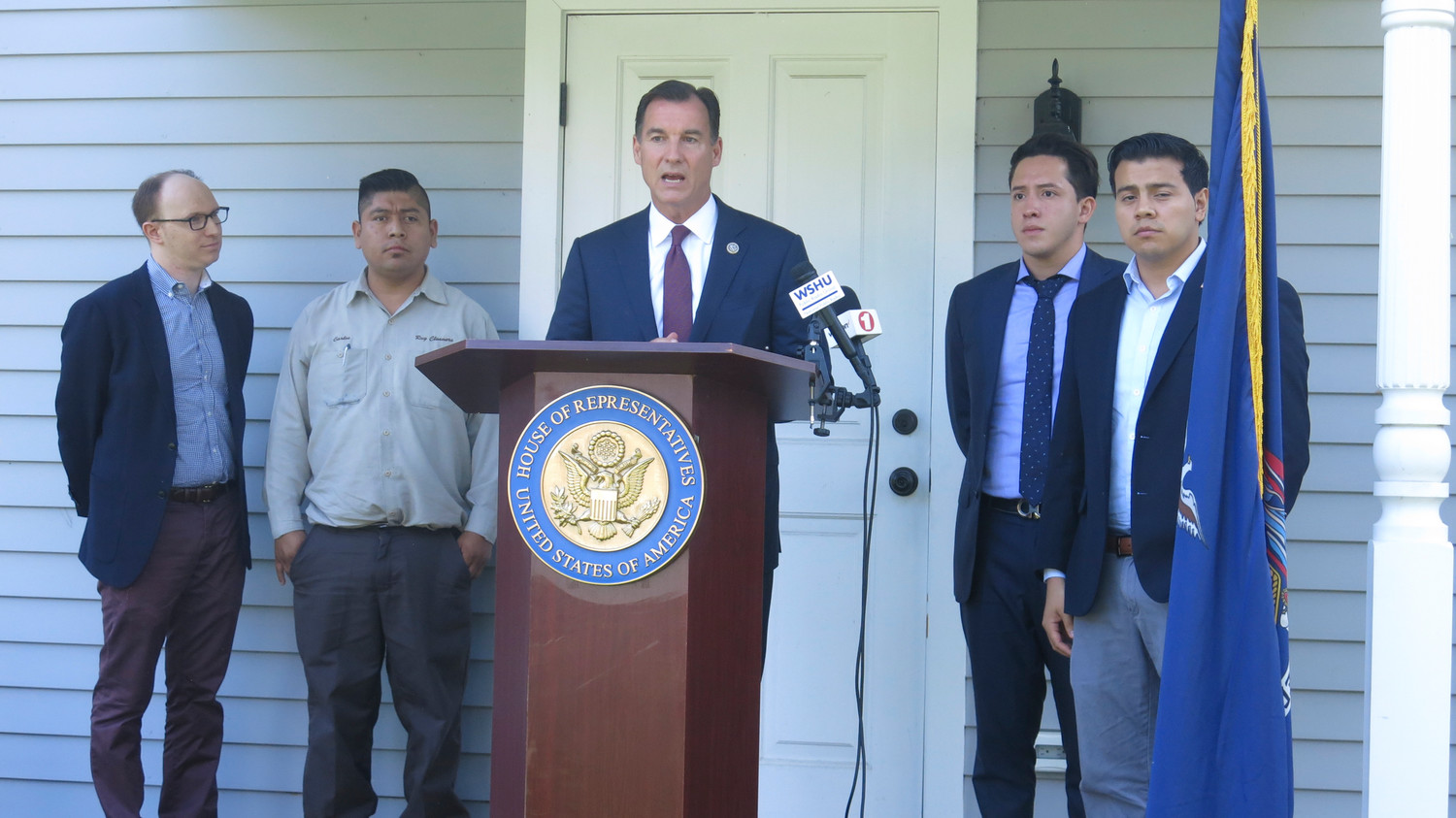Countdown to the end of DACA
Suozzi continues fight to protect undocumented minors
When U.S. Rep. Tom Suozzi was the mayor of Glen Cove in 1994, he worked to help the influx of immigrants to the city from Central and South America. As a first-generation Italian-American, he was sensitive to the reactions of some residents who did not want the newcomers in their city.
“All men and women are created equal — not those with a green card or a particular faith and background, but all,” Suozzi said at a news conference on Monday at his Huntington legislative office, voicing his support for legislation that will protect undocumented immigrants who were brought to the U.S. as children. “After 23 years,” he says, “this country still has not addressed this issue.”
His focus was on humanizing the likely consequences of President Trump’s decision on Sept. 5 to rescind the Deferred Action for Childhood Arrivals program. Signed on June 15, 2012, by President Obama to provide temporary protection from deportation for those immigrants, the program made it possible for them to obtain work permits and driver’s licenses, and to finish school. It will expire on March 5, 2018, unless Trump’s decision is reversed.
“DACA helped young people who have lived their lives in America to make sure they are safe,” Suozzi said. “We’re not talking about some abstract idea. It is real people.”
He is urging House Republicans to schedule a vote on the Dream Act, a pathway to citizenship more inclusive than DACA, which includes several criteria (see box).
“Carlos’s boss wrote a letter to me, telling me what a great worker Carlos is and how his business will be hurt if he has to leave,” Suozzi said, adding that Lezama’s children, ages 10 and 5, are American citizens. “The children would have no one to take care of them.”
Melgar, a college graduate, came to the U.S. when he was 13. He put himself through college by working a variety of jobs. Without citizenship, he was not eligible for financial aid, so it took him eight years to earn his degree.
A community activist, he held several jobs before working for Lavine. He founded the North Shore Hispanic Civic Association, which offers counseling to parents and serves as an advocate in the school district for parents who do not speak English.
“I love this country,” Melgar said. “I’ve worked hard every day since I came here. I would do anything to provide for my community and my family.”
Berrezueta, who came to the U.S. when he was 7, has been working toward a bachelor’s degree in international business for the past five years. A waiter, he saved $4,000 to study abroad for one semester, which is required for his degree. But his application was terminated after Trump’s decision to end DACA.
“Revoking DACA will mean that I will have to return to Ecuador,” Berrezueta said. “Because of what has transpired these past few weeks, I am unable to finish obtaining my degree. All of my years of effort, countless hours of studying, sleepless nights, working two jobs to pay for my tuition, will have all been in vain.”
There are thousands of people in the U.S. like Melgar and Berrezueta, Suozzi said. “This is real life,” he added. “It would benefit us if they would be able to continue to be productive in our society.”
Mary Ann Slutsky, of Long Island WINS, an immigration advocate group in Syosset, asked whether Suozzi believed that the Dream Act, which he is cosponsoring, would ever be voted on by the House of Representatives, given Speaker Paul Ryan’s opposition.
“I can’t answer that,” Suozzi said. “I think it would be smarter to have comprehensive immigration reform. I’d support more border security, and we could end illegal immigration if we create a pathway for the people that are already here.”
Members of both parties need to work together to resolve the issue, he said. “When I speak to people that are anti-immigration reform, I say one of the requirements to citizenship would be that you have to speak English,” he said, adding that that often changes their minds. “We need to find a way to compromise.”
“These are not people that are breaking the rules,” Suozzi said. “For anyone who says don’t negotiate with the president, that’s plain wrong. There are between 5,000 and 10,000 DACA recipients on Long Island. There is no backup plan. We have to resolve this issue.”

 41.0°,
Fair
41.0°,
Fair 




